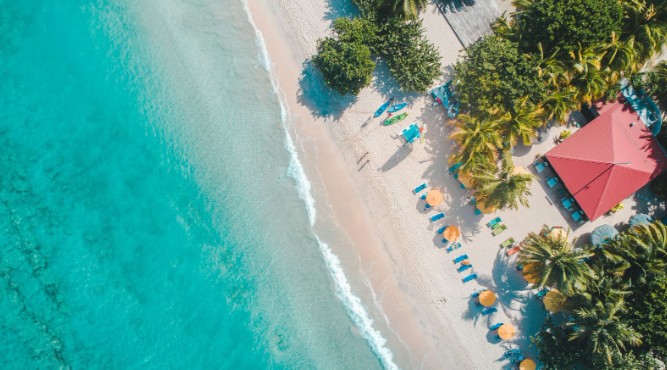Copyright: Unsplash I License: CC0 Domain
Caribbean Citizenship by Investment (CBI) programs are becoming increasingly popular, but the many options can feel overwhelming. Each country has its timelines, benefits, and costs, making it hard to choose the right one.
Whether looking for better global mobility, protecting your wealth, or securing your family’s future, making the right choice requires careful planning.
This article simplifies the decision-making process by highlighting the key factors to consider, helping you choose a program that fits your long-term goals rather than short-term trends.
Define Your Primary Objective
When choosing a CBI program, it’s essential to identify your main goal. Different programs offer unique benefits, so finding the right one depends on whether you prioritize global mobility, financial security, or a better lifestyle for your family. Taking a strategic approach will help you avoid wasting time and resources on a program that doesn’t meet your long-term goals.
Here are three common types of applicants and the programs best suited for them:
- Global entrepreneurs: Grenada is an excellent choice if you want to expand internationally. It’s the only Caribbean nation that offers access to the U.S. E-2 visa treaty, which allows citizens to start and run a business in the United States. This unique advantage sets it apart from other programs.
- Families seeking stability and mobility: Antigua & Barbuda and St. Kitts & Nevis visa-free or visa-on-arrival access to over 150 countries, including the UK and the Schengen Area. These programs also allow dual citizenship and don’t require physical residence, offering flexibility for families who want to relocate or maintain multiple homes.
- Investors focused on wealth preservation: Dominica is a top choice for those looking to protect their wealth. It stands out for its transparent due diligence process, low entry costs, and tax-friendly policies, including no capital gains, inheritance, or wealth taxes. These features are ideal for investors seeking to safeguard their assets across borders.
Conducting a thorough Caribbean Citizenship by Investment comparison is key to making the right decision for your personal and financial goals. Whether you’re focused on increasing mobility, minimizing taxes, or securing a second home for your family, clearly define your goals first. Then, choose a program that aligns with your needs.
Compare Total Costs, Not Just Entry Fees
When looking at Caribbean CBI programs, many people focus only on the upfront donation amount. However, this is just one part of the overall cost. To make a smart decision, it’s essential to understand the total cost of ownership, especially if you’re including family members or considering
Here’s what you need to know:
Donation vs. Real Estate Options
Donation routes, like St. Lucia’s US$100,000 minimum for a single applicant, may seem cheaper upfront, but don’t offer any return on investment. In contrast, real estate options, starting at US$200,000 in places like Dominica or St. Kitts & Nevis, require you to hold the property for 3–7 years. While you can potentially resell the property later, resale markets are often limited, and there are government-enforced price floors and developer fees to consider.
Government and Due Diligence Fees
In addition to the initial investment, you’ll need to pay due diligence fees (around US$7,500 for the main applicant) and government processing fees, which range from US$25,000 to over US$50,000, depending on the country and the number of applicants in your family.
Family Costs
Adding family members significantly increases the overall cost. For example, in St. Lucia, including a spouse and two children raises costs from US$100,000 to around US$150,000–$180,000. In Dominica, a similar family could pay about US$175,000, but the option to resell real estate after the holding period may provide some long-term value.
Hidden Costs to Account For
Real estate programs often include additional expenses, such as developer markups, mandatory holding periods, and restrictions on who can buy resale units. On top of this, legal fees, agent fees, and bank processing charges can add an extra 5–10% to your total cost.
To budget effectively, don’t rely solely on marketing brochures. A thorough Caribbean CBI comparison should include exit strategies, ongoing maintenance costs for real estate, and tax implications. Taking the time to understand all aspects of the program up front can help you avoid unexpected expenses and save money in the long run.

Copyright: Unsplash I License: CC0 Domain
Think Long-Term: Family, Tax, and Asset Planning with Caribbean Citizenship by Investment
When considering CBI programs, looking beyond just gaining a new passport is essential. These programs can play a key role in achieving long-term goals, particularly for families, high-net-worth individuals, and global professionals.
Dual Citizenship and Passing Citizenship to Future Generations
All five major Caribbean CBI programs—Dominica, St. Lucia, Antigua & Barbuda, Grenada, and St. Kitts & Nevis—allow dual citizenship and the ability to pass citizenship to future generations. Dependents such as children, spouses, parents, and siblings can often be added later, providing flexibility as family needs change over time.
These programs are especially valuable for families seeking:
- Better education opportunities for children, such as lower tuition rates at UK universities through Commonwealth ties.
- Geopolitical stability with a second nationality as a safeguard in times of unrest.
- Visa-free travel, granting access to over 140 countries, depending on the specific passport.
Tax Benefits and Asset Protection
Caribbean CBI programs offer significant tax advantages to non-residents. For instance:
- Dominica and St. Lucia don’t tax foreign-sourced income for non-residents.
- Antigua and St. Kitts & Nevis have zero tax policies on capital gains, inheritance, and global wealth, allowing offshore business owners and retirees to accumulate wealth tax-free and easily repatriate funds.
For investors and entrepreneurs, these tax-friendly jurisdictions provide opportunities to strategically manage tax exposure and simplify estate planning.
Wealth Management through Legal Structures
Wealthy families and investors often use Caribbean legal tools like Nevis trusts, foundations, and offshore holding companies to secure and manage global assets. Nevis is particularly attractive due to:
- Strong privacy laws that protect personal financial details.
- High standards for foreign legal claims make it harder for creditors to access assets.
- Flexible trust structures that allow the original asset owner (the settlor) to maintain control.
These tools are ideal for families that want to:
- Protect assets from legal or creditor claims.
- Plan wealth transfers for future generations.
- Reduce risks tied to political or financial instability in their home country.
Stability and Trust
Political stability, strong legal systems, and reliable CBI policies make programs like Dominica and St. Kitts & Nevis stand out. Their proven track records of thorough due diligence and transparency help build trust with global financial institutions, ensuring your second citizenship won’t cause issues with banks or compliance checks.
Go For Clarity Over Hype
Caribbean citizenship isn’t just a trend—it’s a smart, strategic choice. Each CBI program comes with unique benefits, but no single option works for everyone. Whether your focus is on travel freedom, tax benefits, or securing your family’s future, it’s crucial to base your decision on facts, not flashy promises.
Take the time to carefully review the actual costs, timelines, and legal protections of each program. Always consult qualified professionals before making a commitment. Remember, a second citizenship is more than just a passport; it’s a long-term investment in your security and opportunities.
